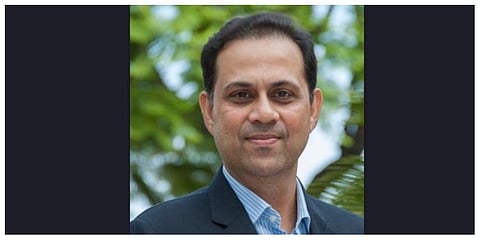

NEW DELHI: CII's President Sanjiv Bajaj on July 5 pitched for the simplification of Goods and Services Tax structure, and suggested that electricity as well as fuel should be brought under the GST ambit as that will help make the industry more competitive.
He also suggested that the number of tax slabs under the GST should be brought down to three.
"Going forward, we believe that on GST further simplification, cutting some of the inconsistencies, there are sectors where there is inverted tax structure, bringing in items like electricity, fuel under GST will further help simplify, cut costs, make industry more competitive," he said in an interview to PTI.
Further, the president of the industry body said there is justification for keeping sin and luxury goods in the highest slab.
"We believe there is (scope for) simplification to probably three slabs. Now that five years have gone and there is experience over there, is what makes sense and that is something that should be deliberated upon," Bajaj, who is Chairman and Managing Director of Bajaj Finserv Limited, said.
Besides the exempted category, GST is levied at 5 per cent, 12 per cent, 18 per cent and 28 per cent.
READ EDITORIAL | After five years of GST, some hits and many misses
There are separate tax rates for gold and precious and semi-precious stones.
On rupee movement against the US dollar, Bajaj said strong forex reserves helped the Reserve Bank of India (RBI) to intervene when required to at least check volatility.
"We believe that eventually the rupee must find its own level and that is a reflection of our own competitiveness but the volatility is what needs to be moderated as RBI has been trying to do," he said.
About high inflation, the CII President the government has already taken a number of actions to reduce inflation on the ground.
"When you look at inflation, we are driven a lot by fuel and food. We hope that we will see good monsoon and if that happens then it should moderate, at least the food prices. Fuel is something that is an uncertainty but commodity prices again, as we have seen, have started to moderate," he said.
Bajaj said capacity utilisation has reached 74-75 per cent and more investments are likely to be witnessed in sectors such as logistics, chemicals, commodities, and construction.
According to him, India is in a much better position than many other countries because of a moderate set of actions taken by the government that were taken over the last two years.
"We are seeing demand come back in the last few quarters. It has moderated a bit in the last month or two, especially in rural India but with hopefully good monsoons and the lowering of the commodity prices, we should start seeing strong growth coming back. So we are in a position where we can't yet declare victory but we are stronger than many other countries and hence there is hope that with a few factors playing in our favour we should see steady solid growth coming back," he said.
He also exuded confidence that the country would witness "solid growth" gradually coming back.
India's GDP grew by 4.1 per cent in January-March quarter of 2021-22 and the full year growth was at 8.7 per cent.